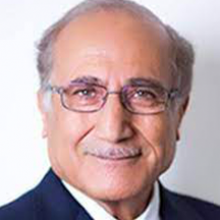You are here
On a sword’s edge
Apr 02,2018 - Last updated at Apr 02,2018
Deputy Prime Minister and Minister of State for Economic Affairs Jafar Hassan made a statement to a Senatorial committee, in which he expounded the economic policy of the government. Based on what was published in the media, I could detect two tracks.
The first one is the government’s intended adherence to painful fiscal and monetary adjustment programme. The fiscal part is specifically referring to the new “income tax law”, which aims to widen the tax base, toughen penalties on tax violators and avoiders and eliminate unnecessary exemptions.
However, the puzzling part in Hassan’s address is the monetary policy, which is already tough. We have been hiking interest rates pari passu with the dollar. The minute the Federal Reserve System raises interest on the dollar, banks in Jordan automatically follow, even before the Central Bank of Jordan (CBJ) makes the decision of doing the same. The reason of this monetary policy automaticity is to prevent the dollarisation of the Jordanian dinar and Jordanian dinar-denominated assets.
In order to prevent crowding-out the private sector by the government in the money market, both the Ministry of Finance and the CBJ have been resorting to borrowing hard currency from the Euro-dollar market. The last loan of 1 billion dollars cost an interest rate of about 7.7 per cent; a high proportion to pay. Now the government is planning to borrow another billion dollars. The interest on such a loan should be better or lower than the last loan segment because Standard and Poor’s (S&P) has given us a (B+) rating, which makes us less of a risk.
Many people asked me whether Hassan was referring to the possibility of tampering with the exchange rate, or devaluing the Jordanian dinar. I utterly disagree with this rumor and I do not see any possibility of devaluation or even floating the Jordanian dinar exchange rate, although floating has some merits in the sense that it affords a new monetary policy tool for the monetary authority of the country.
The other half which the deputy prime minister tackled was the need to implement the government’s plan of incentivating growth in GDP. The government has developed such a detailed plan and has assigned roles to each ministry and independent unit. According to Minister of State for Media Affairs and Government Spokesperson Mohammad Momani, each ministry should produce a monthly report detailing its steps towards that end.
Both Minister of Planning and International Cooperation Minister Imad Fakhoury and the Minister of State for Investment Affairs Muhannad Shehadeh are totally focused on taking steps to increase investments, and bring in more aid directed at investment and restructuring.
The question that looms overhead is what the government’s top priority is. Is it growth or is it painful fiscal and monetary adjustment? It seems that there are two schools. Hassan thinks that both are not mutually exclusive and can be reconciled to create a maximum economic success.
Minister of Finance Omar Malhas focusses more on fiscal discipline and the ministers of planning, labour and investment want the focus to be laid on growth.
Well, if we rationalise our adjustment measures to a minimum acceptable by the people and optimise our growth-aimed measures, then we can get away with it. People are not ready for more real pain. It is a primrose path that may look deceptively easy, but could be fraught with disaster.












